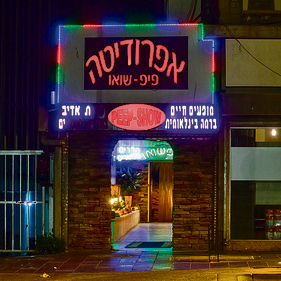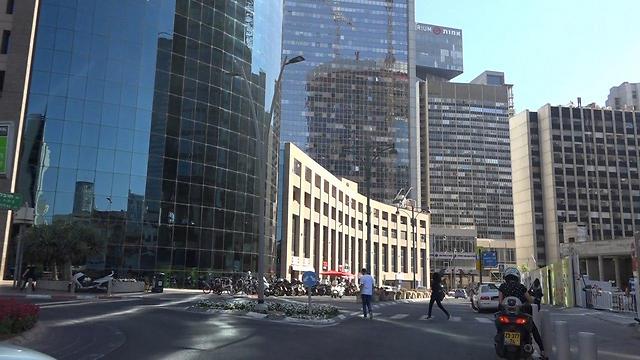

Strip clubs eye legitimacy after court ruling closure
After Tel Aviv District Court rules to close many Ramat Gan strip clubs, municipality formulates plan for them to go legitimate by turning clubs into bars, restaurants and continuing to employ strippers as servers; licenses may still be revoked, says deputy mayor, if transformation turns out to be sham.
Following the Tel Aviv District Court's ruling ordering closure of the Ramat Gan Stock Exchange's many strip clubs, the Ramat Gan municipality is promoting a plan to encourage the clubs' owners to turn their businesses into legitimate enterprises such as bars or restaurants, while continuing to employ the strippers as waitresses or bartenders.
This initiative came on the heels of the court's ruling two weeks ago, saying strip clubs "objectify" women and therefore cannot continue to operate in a complex whose businesses must serve "entertainment" purposes, and should therefore be closed.
Many strip club owners then contacted the municipality, requesting help with changing their business's designation. The municipality responded by deciding to help them turn their clubs legitimate.
It should be noted this does not mean the municipality will become a partner or investor in the name businesses. It will merely act as middle-man between business owners and potential investors and—when the time comes—also assist them in receiving permits.
Thus far, one strip club owner has come forward wishing to turn his business into a pizzeria, with the former strippers serving as waitresses or counter workers.
"The idea came about after one of the club owners told me he helped the girls by giving them a job and taking them off the street," said Deputy Mayor Avivit Maor-Nimrodi who's spearheading the initiative as part of a larger policy by Mayor Israel Zinger, "and that now they'll be unemployed. I offered him to turn his business legitimate so he can keep employing these women and help them get back on their feet."
The main concern with this new imitative is that the new businesses will only be legitimate for appearances' sake, but continue operating as usual behind the scenes. The main problem behind this concern is the owners—who have made their living exploiting women—won't be disconnected from the women they exploited.
"we can't know what happens underground," said Maor-Nimrodi, "but I do check permits before giving anyone a business license. If a business owner's plans for a pizzeria show any small rooms, it'll be easy to figure out something's amiss. If that does happen, I have tools to combat it, which I didn't before."
Adv. Nitzan Kahana, a joint director of an organization combating women trafficking, has some reservations about the plan. "The municipality has both a responsibility and a duty to ensure it'll only be providing permits for above-board businesses, and not fronts for strip clubs, known to be a gateway into the world of prostitution for many young women," she said.
"Real rehabilitation for women exploited in strip clubs should be done by the entities actually certified to do so, and it's unreasonable to assume the club owners themselves—who up until just now have made a fortune on the backs of these exploited women—can do that," she protested.

















